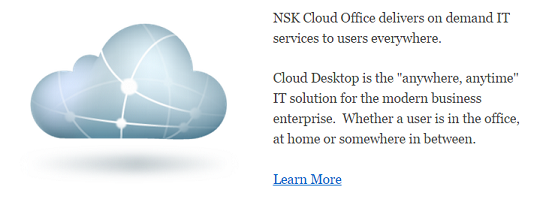
Big data has become ubiquitous, an intangible shadow looming over our lives even if we're not always aware of that fact. The cost of data collection, storage and processing has declined, facilitating the advent of big data. Companies treat it as a currency, a tool to further their aspirations. But some, such as Target, Sony, and Anthem, have paid a high cost for this tool.

Each has encountered high-profile security breaches where sensitive consumer data such as credit card numbers and social security numbers were stolen. Victims of these unwelcomed trespasses numbered in the tens of millions. For many, these incidents served as real-life examples as to the consequences of big data and the cataclysmic damage is it capable of playing host to.
Acknowleding the bevy of emergent issues posed by big data, the Obama administration has been conducting a wide-ranging review of big data and privacy over the last year. Now in early February, the White House has released a report detailing their findings so far.

The report says they recognize the "enormous promise" that big data holds. It can be used to streamline public services, to advance education and health care, and to fight complex crimes like fraud and even human trafficking. It has already increased economic and governmental efficiency, "saving taxpayer dollars along the way."
The administration's goal is to find ways to extract the positive potentials of big data while mitigating the risks it poses to privacy and fair treatment. Their solutions took the form of 6 key recommended policy changes, which they say the administration has partly begun to act on already.
- Consumer Knowledge - The Consumer Privacy Bill of Rights must be advanced and further updated. Consumers deserve to know how their data and personal information is used. Relevant draft legislation is expected in early 2015.
- Cybersecurity Standards - A single national data breach standard should be established to provide the people proper peace of mind. If hit by a data breach, there should be a universal standard for how a company must respond, and a specified time frame for the company to inform its consumers of the event. Revised legislation on the matter, the Personal Data Notification & Protection Act, was released in January.
- Privacy Protection Beyond U.S. Persons - Privacy is a worldwide value. As such, the personal information of everyone, and not just US citizens, should be handled responsbily by the federal government. Attorney General Eric Holder in June 2014 announced the adminstration would seek to extend to European citizens the same agency and judicial redress that U.S. citizens have. Eventually, the same should apply to all people.
- Protection of Student Data - Students should not have their data used for marketing purposes. It should be used for educational reasons only. Application of student data can lead to exciting educational results, such as tailoring lessons to a student's specific learning style to empower them. President Obama announced the Student Digital Privacy Act in January in an effort to curtail abuse of student data.
- Prevention of Discrimination - Either intentionally or inadvertantly, big data has high potential for enabling discrimination. Big data can categorize consumers unfairly and unlawfully, especially with regards to lower income and underserved consumers. Predictive analytics may also lead to discriminatory outcomes in law enforcement, as well. Think of the movie Minority Report, where the dystopian government unethically arrests individuals for crimes they were projected (by big data) to commit in the future. The government is prioritizing this issue, but are still on the drawing board when it comes to action.
- Parity Between Online and Physical Protections - The Electronic Communications Privacy Act should be amended so that the standard for protection for both online and physical content is consistent. Currently, archaic rules exist that are in need of removal. The nonsensical level of access assigned to an email that is left unread or is over a certain age comes to mind.
While the government has a fine plan in place, it won't matter unless their eventual execution is even better. As the White House deliberates, the rise of big data continues at exponential rates. The hot streak of security breachers stealing personal data from companies can continue at any time without notice.
In order for big data to live up to its "enormous promise," its harmful elements must be effectively stymied. Big data has become engrained into modern society, and unless we slash at the weeds at every turn, the overgrowth will grip the world in a devastating chokehold.
Sources: http://techcrunch.com/2015/02/05/white-house-report-sees-potential-pitfalls-of-big-data/
http://www.scribd.com/doc/254820501/20150204-Big-Data-Seizing-Opportunities-Preserving-Values-Memo

